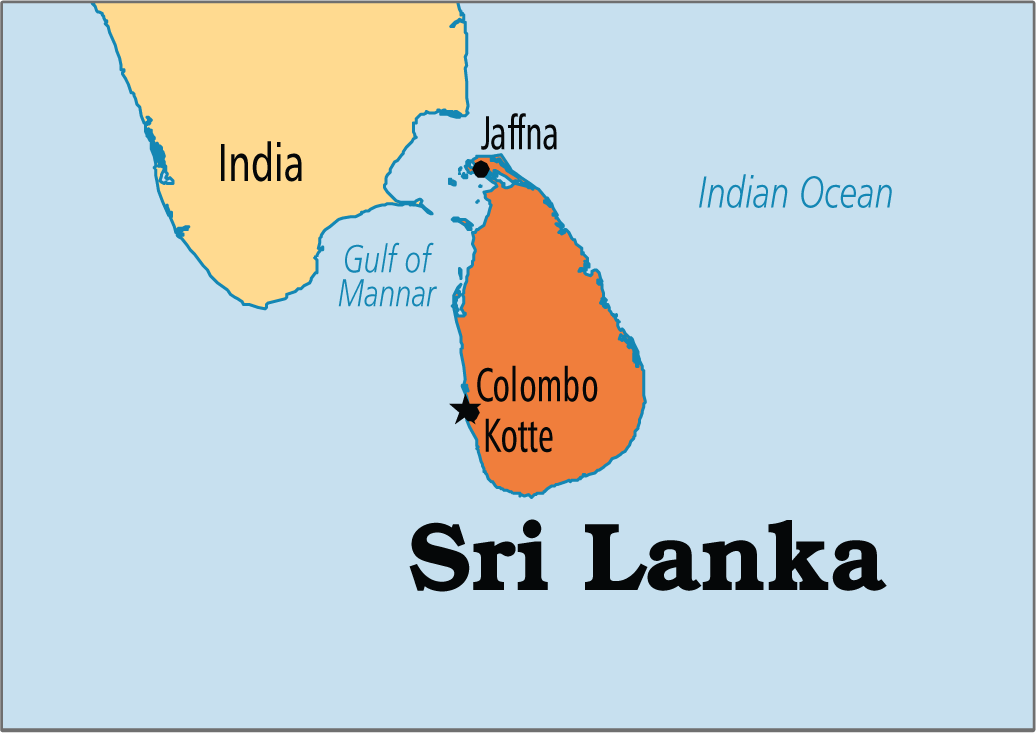UNHRC’s New Resolution Against Sri Lanka | 25 Feb 2021
Why in News
Recently, Sri Lanka has made an appeal to the member states of the United Nations Human Rights Council (UNHRC) to reject the impending resolution on the island nation's human rights accountability and reconciliation.
- Sri Lanka is facing a new resolution calling on it to hold human rights abusers to account and deliver justice to victims of its 26-year civil war (1983-2009).
- The war was mainly a clash between the Sinhalese-dominated Sri Lankan government and the Liberation Tigers of Tamil Eelam (LTTE) insurgent group, the latter of which had hoped to establish a separate state for the Tamil minority.
- Sri Lankan forces and Tamil rebels were accused of atrocities during the war, which killed at least 1,00,000 people.
Key Points
- The New Draft Resolution/The Zero Draft:
- It incorporates some of the elements of the UNHRC report, including those on strengthening the HRC’s capacity on preserving evidence, devising strategies for future accountability processes, and supporting judicial proceedings in member states with jurisdiction.
- As per the UNHRC report, the government of Sri Lanka had created parallel military task forces and commissions that encroach on civilian functions, and reversed important institutional checks and balances, threatening democratic gains, the independence of the judiciary and other key institutions.
- It also talks about encouraging the Sri Lankan government to implement the requirements of the previous 30/1 resolution (from which it pulled out).
- Resolution 30/1:
- It wanted Colombo to establish a credible judicial process, with the participation of Commonwealth and other foreign judges, defence lawyers and authorised prosecutors and investigators, to go into the alleged rights abuses.
- Recently, Sri Lanka has said that Resolution 30/1 was against the country. The Resolution carried a host of commitments that were not deliverable and were not in conformity with the Constitution of Sri Lanka.
- Resolution 30/1:
- It asks the High Commissioner’s office to monitor progress on national reconciliation and accountability mechanisms, and come up with updates next March, and a full report in September 2022.
- It incorporates some of the elements of the UNHRC report, including those on strengthening the HRC’s capacity on preserving evidence, devising strategies for future accountability processes, and supporting judicial proceedings in member states with jurisdiction.
- UNHRC’s Stand:
- The present government in Sri Lanka was “proactively” obstructing investigations into past crimes to prevent accountability, and that this had a “devastating effect” on families seeking truth, justice and reparations.
- United Nations (UN) member states “should pay attention to the early warning signs of more violations to come, and called for “international action” including targeted sanctions such as asset freezes and travel bans against “credibly alleged” perpetrators of grave human rights violations and abuses.
- States should also pursue investigations and prosecution in their national courts under accepted principles of extraterritorial or universal jurisdiction of international crimes committed by all parties in Sri Lanka.
- India’s Stand on Previous Resolutions Against Sri Lanka:
- India voted against Sri Lanka in 2012.
- India abstained in 2014.
Way Forward
- The state is at the core of the historical problems, whether it is repressive militarisation, the reinforcement of majoritarian interests or the centralisation of state power in Colombo. But reforming the state requires direct challenges by its citizenry, rather than flight to international forums.
- The ‘China factor,’ the ‘Sri Lankan ethnic issue,’ and the attendant ‘UNHRC resolution’ have negatively impacted bilateral relations between India and Sri Lanka. India needs to focus more on its traditional and cultural ties to improve relations with Sri Lanka. Mutual recognition of each other's concerns and interests can improve the relationship between both countries.

